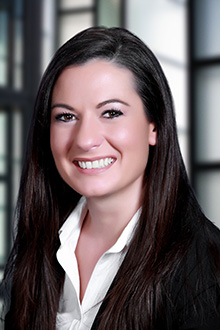Attorney-Negotiated Discounts Do Not Fall Within Collateral Source Rule
Case: Hoffman v. 21st Century N. Am. Ins. Co.
Louisiana Supreme Court
No. 14-2297, 2015 La. LEXIS 1962 (10/2/15)
Plaintiff, Eddie Hoffman was injured in October 2010, when his vehicle was rear-ended by a vehicle driven by Carolyn Elzy. Hoffman filed suit against Ms. Elzy and her insurer seeking damages allegedly resulting from the accident. In a bench trial, the court found Elzy 100% at fault for the accident and awarded $4,500 in general damages and $2,478 for medical expenses for a total award of $6,978.00. Hoffman appealed, alleging the award for special damages was erroneous, noting he had presented evidence of $4,528.00 in past medical expenses. The appellate court affirmed the verdict of the trial court in all respects. On rehearing, the appellate court affirmed its previous decision.
Specifically at issue were medical charges for two MRIs, each for $1,500.00 (a total of $3,000.00). At trial, Hoffman introduced a medical statement for $3,000.00 from the imaging center. However, Hoffman was awarded a total of $950.00 ($475.00 for each MRI) based upon a medical statement from the imaging center that showed only $950.00 was actually paid (through Hoffman’s attorney) and the remaining $1025.00 for each MRI was “written off” pursuant to an “arrangement” the attorney had with the medical provider. Hoffman contended that, under the collateral source rule, he was entitled to the total billed amount, including the portion of the bill that was “adjusted,” or “written-off.” The Louisiana Supreme Court granted certiorari to determine the res nova issue of whether the collateral source rule applied to the “written-off” portion of a medical bill when the plaintiff’s attorney negotiated the discount.
Under the collateral source rule, a tortfeasor may not benefit, and an injured plaintiff’s tort recovery may not be reduced, because of monies received by the plaintiff from sources independent of the tortfeasor’s procuration or contribution. Thus, any payments received by the plaintiff from an independent source are typically not deducted from the award the injured party would otherwise receive from the wrongdoer. Simply put, the tortfeasor is not allowed to benefit from the victim’s foresight in purchasing insurance and other benefits.
However, the Supreme Court declined to extend the collateral source rule in this instance to attorney-negotiated medical discounts obtained through the litigation process, noting that such a discount is not a payment or benefit that falls within the ambit of the collateral source rule. The Court reasoned that allowing the plaintiff to recover an amount for which he has not paid, and for which he has no obligation to pay, would be at cross purposes with the basic principles of tort recovery, i.e., that the wrongdoer is responsible only for the damages he or she has caused. Further, the Court noted the plaintiff suffered no diminution of his patrimony to obtain the write-off, and the defendant cannot be held responsible for medical bills or services the plaintiff did not actually incur and need not repay. The Court reasoned that to hold otherwise “would amount to a windfall and force the defendant to compensate the plaintiff for medical expenses the plaintiff has neither incurred nor is obligated to pay.”
Of interest, the Louisiana Supreme Court has similarly rejected the application of the collateral source rule in favor of a rule more narrowly tailored to better conform with the compensatory goal of tort recovery with regard to Medicaid “write-offs,” i.e., medical expenses contractually adjusted by healthcare providers pursuant to the federal Medicaid program, under which no consideration is provided by the recipient for the receipt of Medicaid benefits. See Bozeman v. State, 03-1016 (La. 7/2/04), 879 So.2d 692.
